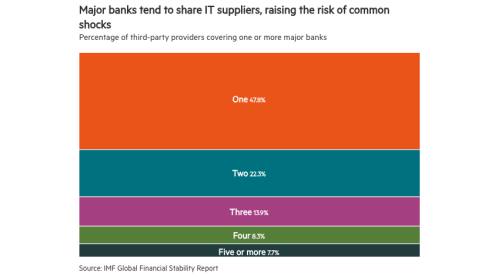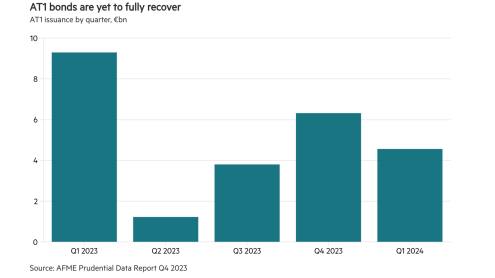On the eve of the communist takeover of Shanghai in 1949, the city was Asia's leading financial centre. There were 24 state banks, over 200 private lenders, trust companies and other financial institutions to serve the needs of China's most urbanised and commercial metropolis. Shanghai then had the world's third largest stock market, after New York and London.
Things changed overnight. The new communist regime closed all financial markets and nationalised all banks and other private companies. People and money fled the city for the British-administered politically safe haven of Hong Kong. Shanghai then slid into economic decline as China closed its doors to the outside world and banned private enterprise. Hong Kong prospered at the expense of Shanghai, rising to become China's financial gateway.
Born again capitalism
Today, Shanghai has been reborn as the financial heart of a new, reformed China, competing with Hong Kong to become the country's premier financial centre. In this city of 13 million people on the east coast of China, hundreds of domestic banks, insurance houses, securities firms, trust companies and other financial firms are jostling for business in the ever-expanding financial sector. Most of the world's most important financial players, such as Citibank, HBSC and AIG, have also been here for years, using Shanghai as a base for their growing China business.
Shanghai sets its sight not only on becoming a national but an international financial centre, describing its ambition as a "state strategic policy". Mayor Chen Liangyu spoke excitedly about such a goal at the Asian Development Bank's annual meeting in his city last May. "It is a dream for myself and all my predecessors," he said, adding that the financial sector will account for 20% of the city's GDP in 2003 from 13.8% last year.
Shanghai has bounced back from obscurity because of strong political support from the top, its desire to reclaim lost glories and the confidence foreign investors have in the city's future.
In the 1980s, Shanghai lagged behind southern Chinese cities such as Guangzhou and Shenzhen which were given more freedom to experiment with economic reform. Shanghai was on a tighter lease, because the central government depended heavily on China's biggest city for tax revenue.
As a result, Shanghai remained chained to command-style economic management, while rival cities embraced market-oriented reform. Shenzhen, the fishing-village-turned-city adjacent to Hong Kong, stole a march on Shanghai in financial reform, even though the latter was an industrial powerhouse. Shenzhen was the first to have a stock market, months before Shanghai set up the country's second bourse in December 1990. Shenzhen also secured another concession from the centre, to become one of the few Chinese cities where foreign banks were allowed to set up shop and do business.
Mandate for reform
Shanghai did not awake from its deep slumber until patriarch leader Deng Xiaoping made a trip to the city in 1992 and threw his support behind the city to pursue faster and bolder reforms. The city, armed with this mandate, did what was needed most for its old and strained infrastructure: a massive urban renewal programme on a grand scale rarely seen in the world.
The achievements are evident to any visitor to Shanghai today. Within a decade, the city has built half a dozen round-the-city ring roads, a grid of elevated motorways, tunnels, highways, cross-harbour bridges, a new subway, a new international airport, hundreds of modern skyscrapers, a state-of-the-art opera house and a world-class museum of history.
Shanghai's most spectacular achievement has been to turn Pudong, a quiet suburban area on the other side of the city's Huangpu river, into a financial and business district. The city government did this by offering cheap land and tax concessions to companies willing to invest in Pudong. Today, this formerly quiet town has hundreds of modern plants and offices of multinationals such as Sony, Hitachi, Microsoft and Intel.
In the Lujiazui Central Financial District, known as Pudong, financial institutions have buildings bearing prestigious names such as the Shanghai Securities Exchange Building and the HSBC Tower. The most eye-catching block is the 88-storey Jinmao Tower, said to be the world's third tallest.
Foreign magnet
With improved infrastructure, Shanghai, long a favourite destination of foreign investors, became a more powerful magnet drawing capital and skilled personnel. In the last 10 years, Shanghai attracted nearly $50bn, about half of China's total. Multinationals have invested in industries such as micro-electronics, automotive, steel and petrochemicals, using Shanghai as a gateway to sell to its hinterland, the affluent Yantgze River delta.
Amid rapid growth, Shanghai began to cement its position as the country's leading financial centre. In 1994, China National Foreign Exchange Trading System was set up in Shanghai, linking for the first time foreign exchange trading nationwide. In 1996, Shanghai was again chosen to operate another important market, the national interbank market. In the same year, the People's Bank of China (PBC) conducted its first open-market operations in the treasury bond market of Shanghai.
Soon afterwards, the central bank also gave the green light to nine foreign banks to conduct renminbi business in Shanghai. Other financial projects planned for Shanghai include a re-insurance market, a gold market and a national credit and bank card centre.
The only way for Shanghai's financial markets to go is up, especially with the gradual introduction of products such as derivatives and swaps, says Stephen Harner, a Shanghai-based financial industry consultant and the former head of Deutsche Bank in Shanghai.
Shanghai is itself a vibrant banking centre where offices operate until late in the evening, cash machines are everywhere and services are efficient and friendly. At end-June 2002, banks in Shanghai had outstanding deposits of Rmb920bn ($111bn) and made Rmb689bn of loans, double the business volumes of 1995.
Shanghai has made great strides in consumer finance, notes Francis Bassolino, a business management lecturer at the University of Chicago who has done much research on retail banking in China. "The average Shanghai citizen can now access more financial products, including auto financing, mortgages and student loans," he says.
Lately, the financial scene of Shanghai has become more crowded and competitive, as domestic and foreign financial institutions expand their operations in the wake of China's accession to the World Trade Organisation (WTO).
From now until 2006, China is committed to open up in phases its retail banking, insurance, securities and fund management business to foreign players. A few foreign banks such as HSBC and Citibank have relocated their China headquarters from Hong Kong to Shanghai. Many foreign insurers have set up shop recently, preparing to sell group, health and pension-related insurance to local customers eventually.
Foreign securities firms are busy setting up joint ventures in Shanghai with local partners, for when they are allowed to underwrite domestic issues and manage funds in China.
By end-2002, foreign financial institutions had set up 54 branches in Shanghai, with assets totalling $20bn or 55% of such foreign assets in China, and 74 representative offices.
While Shanghai's financial prowess may be growing by the day, the nerve centre is still in Beijing. Almost all banks, insurance companies and securities houses have their headquarters in the capital. Financial regulators, like the PBC, the China Securities Regulatory Commission (CSRC), the State Administration of Foreign Exchange and the China Insurance Regulatory Commission (CIRC) are there too.
Such a split between financial markets and institutions is a legacy of the old planned economy of socialist China, notes Mr Harner. Shanghai was a mere municipality under a highly-centralised government which set targets and quotas from Beijing for implementation nationwide.
China is now a mixed planned and market economy but Shanghai still has to take its cue from Beijing. Mr Chen, the mayor, admitted recently that the city needed to work closely with the PBC, the CSCR and the CIRC in developing its financial sector.
Another shadow hanging over Shanghai's claim to be an international financial gateway is the country's underdeveloped financial system. Chinese banks, debt-ridden and unprofitable, are protected and have little competition in the city and elsewhere in the country. Money and capital markets, though housed in modern buildings, are small and immature, with frequent revelations of insider trading, corruption and other scandals. "China's financial markets are tiny. Equity capitalisation is 16% of Japan's and foreign exchange turnover in China is $5bn versus Japan's $625bn," says Mr Bassolino.
Restrictive practices
For foreign players, the business environment in Shanghai is nothing like Hong Kong, London and New York, and will remain restrictive and difficult despite China's WTO commitments. China continues to restrict the number of potential entrants with high capital requirements and cumbersome licensing requirements.
To form a joint venture or subsidiary, a foreign-invested financial institution needs to have $10bn-$20bn in global assets, and investment of $30m-$120m or more. A foreign bank may only establish one branch each year and its renminbi lending cannot exceed 50% of its foreign-currency liabilities. These tough conditions will reduce Shanghai's commercial attraction, no matter how much improvement the city makes in terms of physical infrastructure.
Shanghai also has much to do to improve its financial-related services, such as accounting, auditing, credit rating and actuarial work. There is also a shortage of financial professionals. Says Alan Qiu, a native of Shanghai and a investment banker-turned-consultant, "Shanghai looks great on the outside, with many new and tall buildings. However, the software is not up to scratch. Many mid to high-level professionals began their career in the state-owned banks and have a stiff mindset."
Unlike rival Hong Kong, Shanghai lacks an independent legal system or a transparent and predictable regulatory environment. Notes Giles Chance, formerly head of China research at Brunswick Emerging Markets: "Currently the rights of foreign investors in China are protected by a patchwork of specific laws aimed at particular problems like dividend repatriation. These are framed in a spirit of cautious experimentation, rather than the confident assertion of inalienable rights taken for granted elsewhere like the US."
There is also no free movement of capital, as the renminbi is not convertible and foreign-exchange controls are strict.











